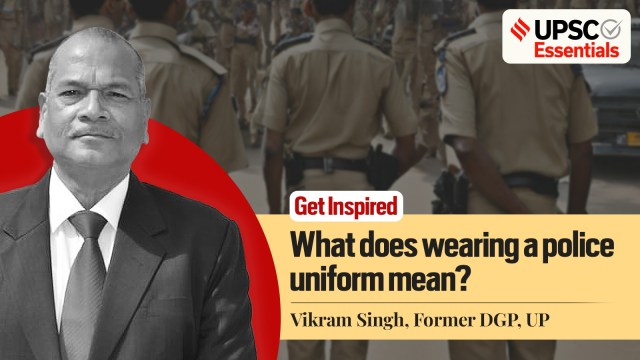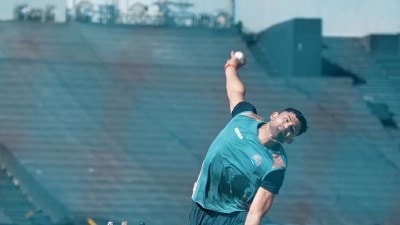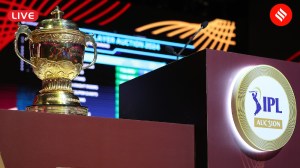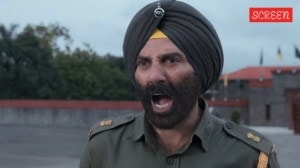

Manas: A police uniform inspires a lot of youth to join the services and wearing it is a source of pride for many officers. What does it really mean for you?
Vikram Singh: A police uniform is a gift of God! After wearing it for a good 36 years, people often presume that as I have had a very difficult and tumultuous service period, I would never like to wear this uniform again. But the truth is that if there is an afterlife, my firm desire will be to serve in the police again as an IPS officer in the UP Cadre. Whenever I wore the uniform, I felt I was truly blessed because I had an opportunity to serve the country and to be a part of a service ‘Jahan naukri ki ibaadat karne ki tankhawa milti hai’. (You are paid your salary because you worship your job.)
Manas: A lot of values are attached to this service. What according to you should be the core values of a police officer?
Vikram Singh: A police officer has to be people-centric. You belong to everyone and everyone belongs to you, irrespective of caste, community and religion. This also translates into unimpeachable integrity in thoughts, words and deeds. If you possess all qualities but lack integrity you are bound to score a big zero in your professional life. One has to live like a hermit in uniform. Only then one deserves to be a police officer.
Manas: Unfortunately for the general public, the police uniform is still seen as a symbol of force and generating fear…
Vikram Singh: Let me take you back to the year 1861. Police Act of 1861 was programmed and designed to make the police an instrument of exploitation of the masses. The legacy of being repressive and extortionist was accompanied by lower salaries. So, corruption, unfortunately, got associated with the police service.
It is often said, ‘Bad acha, Badnaam bura’ (A bad man is better than a bad name). We have inherited that reputation.
That is not going to be washed away very easily. Just like all the perfumes of Arabia couldn’t sweeten Lady Macbeth’s little hands.
However, I have seen many police officers refusing to take favors, bribes and illegal orders from their political masters. I can tell you that it takes only the first few years for politicians to pressurise you for something unethical or illegal. But your firmness makes them understand soon that you can be a tough nut to crack and can’t be arm twisted.
Build up a strong reputation and unshakable integrity and bulletproof your career.
Story continues below this ad
JUST FYI
Observed on October 21 every year, the Police Commemoration Day remembers the sacrifices of ten policemen who died in Chinese firing in 1959. Chinese troops opened fire and threw grenades at a party of 20 police personnel in Ladakh’s Hot Spring Area. While 10 were killed in the incident, seven others were injured and were later taken as prisoners by the Chinese. Three weeks later, China returned the bodies of the 10 personnel who were later cremated with full police honours at Hot Springs in North Eastern Ladakh. Police personnel had been responsible for manning the 2,500-mile-long border of India with Tibet until the autumn of 1959.
 Previous Police Commemoration Day parade held in Chandigarh. (Source: Express Photo by Sahil Walia/File)
Previous Police Commemoration Day parade held in Chandigarh. (Source: Express Photo by Sahil Walia/File)
Manas: Many also feel that becoming a police officer requires some important qualities. Who according to you is ‘fit’ for serving in the Indian Police Service?
Vikram Singh: Any person who is physically, mentally, and spiritually tough and strong is fit. There will be illegitimate, illegal and unethical demands., but you should have the steel in you to say a polite no or a firm no at times.
As a police officer, one has to have an embodiment of Intelligence Quotient (IQ), Emotional Quotient (EQ), Spiritual Quotient (SQ), and interpersonal skills. If even one of them is missing, there is bound to be a question mark on your uniform.
Fifty years ago, it was said that one is a good police officer only if he or she is a half-butcher. Today you have to be a cent per cent human – a father, a mother, and a guru rolled into one body defines a police officer.
Manas: Can you please elaborate on the need for a Spiritual Quotient (SQ) in the lives of police officers?
Vikram Singh: The misery you see every day- dead bodies, orphans, heinous crime victims, the temptation that surrounds you, violence, hedonism… you name it and the police have to face each one of them. Unless you have a high spiritual quotient, it isn’t easy to stand firm on the ground and uphold the law of the land.

Story continues below this ad
I must mention here, even if you haven’t asked, the images of police officers portrayed in cinemas including in Dabbang and Singham with shirt buttons open and dancing on the streets, are not the real images of a police officer. Nor they are what some officers on social media show it to you. That shouldn’t inspire you. This job is a 24×7 job that demands discipline, integrity and strong dedication. And therefore I stress upon IQ, EQ, SQ and interpersonal skills.
Manas: We come across many stories from the professional lives of police officers where they faced many challenges. Such episodes are real-life case studies for aspirants and new recruits. Can you please share one such incident from your illustrious career, which you think the youth of today should know?
Vikram Singh: Every day is a challenge in the life of an honest police officer. I faced challenges till the last day of my duty. But the challenges you face at the beginning of your career and your responses to them shape the path of your life. I remember when I was an ASP in the Mirzapur district in 1977 there was an incident that I remember to this date.

I was new in the service. A strong local politician had captured a piece of land belonging to the tribal people. The tribal people came up to me and asked if I could help. I had two things in mind. First, let the sleeping dogs lie. Second, I must act. This was one of the situations when you knew that poor people were legally and morally right, but there was a powerful politician behind them. I went with the second option and boldly told the politician- “Izzat Pyaari hai toh khud hi zameen khaali kar dijiye'”. This is not just an anecdote. I know many of your readers are aspirants who will face these situations in the early part of their careers. The first few years will set the tone. As I have answered in one of your questions earlier, your deeds in the first few of your service will send the message across that you can’t be arm twisted.
How many more incidents to tell? My whole career has been full of challenges. But like any honest officer who takes pride in wearing the uniform, I never wavered.
Subscribe to our UPSC newsletter and stay updated with the news cues from the past week.
Story continues below this ad
Share your views, answers and suggestions in the comment box or at manas.srivastava@indianexpress.com




 Previous Police Commemoration Day parade held in Chandigarh. (Source: Express Photo by Sahil Walia/File)
Previous Police Commemoration Day parade held in Chandigarh. (Source: Express Photo by Sahil Walia/File)






























